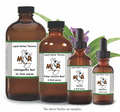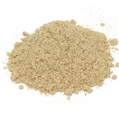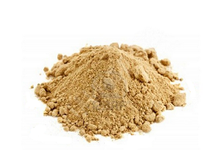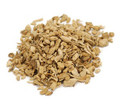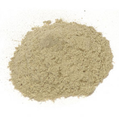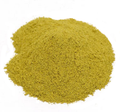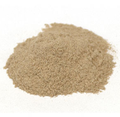 Loading... Please wait...
Loading... Please wait...- Home
- Bulk Herbs
- Herbs (C)
- Calamus Root Powder
Calamus Root Powder
Sorry but this item is currently unavailable.
Please check back at a later stage.
Product Description
Calamus Root Powder
Also Known As – Acorus calamus
Origin: USA Wild Crafted
Overview - The sharp-edged calamus is a perennial semi-aquatic plant that grows in marshes and on muddy banks of streams. Calamus root was discussed in the Divine Husbandman's Classic of the Materia Medica. This revered Chinese herbal text was written anonymously during the Han dynasty in the second or third century BC, with the knowledge attributed to the legendary figure Shennong who lived about 2500 years earlier. If Shennong did indeed use calamus root, he did so hundreds of years before its first known medicinal use.
It was also used as an attractant for muskrats, who voraciously ate the root, even collecting it for future consumption in their nests. Native Americans planted it on the edge of villages so they could trap the muskrats when they came for the root.
Parts Used - The rhizome, dried and chopped or ground
Preparations - The varieties of calamus available in the United States and Canada are best used as bath additives, gargles, lotions, or washes, unless they are used in combination with other herbs in Chinese or Ayurvedic medicine. Seldom found as a capsule or extract
Specific: Not for internal use. The FDA strictly prohibits the use of Calamus in food products.
Medicinal - Despite safety concerns, calamus is used for gastrointestinal (GI) problems including ulcers, inflammation of the stomach lining (gastritis), intestinal gas (flatulence), upset stomach and loss of appetite (anorexia). Calamus is also used as a calming medicine (sedative), to induce sweating, and to treat rheumatoid arthritis and stroke.
Some people chew calamus to remove the smell of tobacco, as a stimulant, to increase their sense of well-being, and as a hallucinogen.
Some people apply calamus directly to the skin to treat certain skin diseases.
Precautions -
- Medications for depression (MAOIs) interacts with CALAMUS
Calamus contains a chemical that affects the body. This chemical might increase the side effects of some medications used for depression.Some of these medications used for depression include phenelzine (Nardil), tranylcypromine (Parnate), and others.
- Sedative medications (CNS depressants) interacts with CALAMUS
Calamus might cause sleepiness and drowsiness. Medications that cause sleepiness are called sedatives. Taking calamus along with sedative medications might cause too much sleepiness.Some sedative medications include clonazepam (Klonopin), lorazepam (Ativan), phenobarbital (Donnatal), zolpidem (Ambien), and others.
Disclaimer - The products and the claims made about specific products on or through this site have not been evaluated by United States Food and Drug Administration and are not approved to diagnose, treat, cure or prevent disease. The information provided on this site is for informational purposes only and is not intended as a substitute for advice from your physician or other health care professional or any information contained on or in any product label or packaging. You should not use the information on this site for diagnosis or treatment of any health problem .You should consult with a healthcare professional before starting any diet, exercise or supplementation program, before taking any medication, or if you have or suspect you might have a health problem. Please educate yourself on the use of herbs. Mountain Maus’ Remedies and Such is not responsible for the use of these bulk herbs, herbal tinctures, massage oils, soaps or any other product sold and when purchasing then you agree not to hold Mountain Maus’ Remedies and Such or any of it's owners liable.
Please note: We do not directly or indirectly dispense medical advise or prescribe the use of herbs. In the event you use the herbs without your doctor's approval, you are prescribing for yourself, which is your constitutional right, but we assume no responsibility. If you are pregnant or nursing a baby, have heart disease, epilepsy, high blood pressure or diabetes, seek the advice of a health professional before using herbal products.







